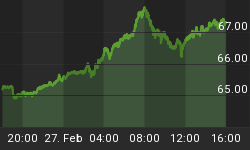
FRA Co-Founder Gordon T. Long discusses with Global Macro CME Floor Trader Yra Harris, the difficulties of investing in the currently suppressed global market. Yra has been a member of the CME since 1977 and is a well-known global macro trader. Yra currently works with Vine Street trading.
Yield Curve
Yra distinguishes the 5/30 UST as much more of speculators curve, and the 2/10 UST, an investors curve, meaning people with a longer term horizon.
Regarding the flattening of the yield curve line: Yra references Paul Samuelson saying the stock marketing having predicted the past 9 of the 5 recessions, however the same cannot be said for the yield curve.
"When the yield curve starts to flatten, to ultimately invert, trouble looms."

Yra believes that central banks eventually error one way or another, and ultimately cause the curve to flatten.
2016 Predictions
The market anticipates slowing growth, if not negative growth resulting in recession. The last time this was seen was 2006-2007. When the fed was raising rates, driving the rate to 5.5% on the federal fund rate, the yield curve was flattening, and within 6-9 months later, the curve had inverted.
Yra combats the notion that the yield curve is a bad indicator by saying, "It is only a bad indicator because I cannot time for you, what the market's reaction to it will be."
Yra mentions Stanley fisher saying that going to negative yields in the United states would be very difficult because of their money market funds.
"If the federal reserves of the United states went to negative yields it would be a catastrophic statement that they had panicked, indicating they have nothing left."
Yra brings up Stanley Fisher saying the four rate increases are a probability.
"I'm going to watch what the metals market is doing. If the gold rallies while the curve flattens, it will be telling me that the market is getting fearful...meaning the central banks are losing control."
"The optimal control function is a myth. Economic analysis is not rocket science. Good science is the ability to continuously replicate an experiment and get the same results, this is not the case."
Yra believes that central banks are not concerned about inflation, because banks have learned they can slay inflation, by raising rates high enough to stop it, which will and has caused the yield curve to invert in the past. Systems built on borrowing, such as China, would rather endure periods of inflation than deflation, deflation is 30% unemployment, everything stops. "run inflation hotter, because that's the greatest thing to remove the overhang of debt"
"If you can't restructure, and if you can't write it off, because you're worried about the banks, you have to create some inflation, and their fear is that they've been unable to."
Geo Political Tension -- Oil & Chinese Markets
Demand is contracting because the world economies are slowing down. The Saudis have built their structure based on that they felt comfortable that the United States and the six fleet would always be there to support them.
"Saudis are sending a message that they're upset with the United states about a shift of policy, as they see it. We are at a critical junction, and I think oil is all part of it. All of a sudden the Saudis are going to do an IPO of Aramco, which will bring significant implications, they've never gone that route, why now?"
There is word that they're short of capital, however it's cheaper to raise capital in an equity capital than a bond market. Saudi reserves are not the collateral for those bonds. This is all tied into the price of crude oil.

"China is a great story, from an academic sense, but from a market sense I don't trust anything that I read out of China."
Yra's tongue and cheek example is Google not being allowed to be used freely, restricting the free flow of information.
"It's amazing to me that this country, that does not allow free flow of information and data, can meet market projections at so many of their data releases. I don't trust the (Chinese) data enough to trade."
One thing that has always scared the Chinese authorities is losing control of the employment situation. Michael Pettis has talked about how the Chinese leadership has financially repressed the middle class, because they've kept the Yuan too cheap in order to build a vast pool of reserves. When a country wants to buy imports, they have to pay a greater price but the goal was to drive the export engine. When trying to make the shift from export oriented to a more domestic oriented economy, then a stronger Yuan is more desirable, which would make for cheaper imports. Yra states, "If you're really trying to empower your citizenry, let the currency go higher."
"China is still a totalitarian government, and they can inspire fear, which is what a totalitarian regime operates on"
The Focus For Investors
"We don't have the play out of fundamentals that we used to. They will eventually play out because fundamentals will ultimately drive the market, they have to."
Yra says that the equity markets are so linked and tell a global story, but believes that linkage is a false correlation.
"Monetary policy and financial acumen is still not rocket science" - It brings with it much uncertainty.















